By Talal Mohammad and S. Mohammad Hassan Bahr al-Uloom
The youth chanted, “Ali wiyak Ali!” “Ali is with you!” as they ripped down the picture of Iran’s Supreme Leader, Ayatollah Ali Khamenei in the Iraqi holy city of Karbala, one of the Shi’a’s holiest sites, which also houses the mausoleum of Imam Hussein and his companions. Demonstrations in Iraq in the first week of October witnessed clashes between government forces and citizens from different strata of society, leading to more than 150 deaths and nearly 6,000 injuries.
These are not the first demonstrations Iraq has witnessed since the fall of Saddam in 2003. The common denominators have always been corruption, unemployment, sectarianism, and foreign intervention. Protests this time were centered in Baghdad and the predominantly Shi’i south. Destruction of public property reached Imam Ali’s holy city of Najaf, the Shi’i Vatican that houses the “Marja’iyya al-Olya” or the Supreme Religious Authority, of which the most notable is Ayatollah Ali Al-Sistani, long known as the “safety valve of Iraq.”
Defined as a quietist school in Shi’i Islam, the Najaf seminary seldom interferes in the day-to-day affairs of the political system. Their explicit interaction with the outside world is rare. In September 2019, prior to the current protests, the representative of Ayatollah Sistani and the Supreme Religious Authority gave an interview with Shafaqna, in an attempt to define the role of the Marja’iyya and where it stands domestically. No interviews have been given since. However, the authors have been given access to clerical representatives of the Marja’iyya in Najaf. Through discussions, the clerics shed light on the Marja’iyya’s position on three main points: how the Marja’iyya defines the recent events and its domestic role, the shift in Najaf’s role from observer to a more proactive, and any foreign intervention in Iraq.
We don’t know exactly what triggered the October protests. However, the demotion of a military general, Abdul Wahab al-Saadi, famous for leading the fight against ISIS in Mosul, is thought to have been the spark. And although the demonstrations were relatively free of any sectarian rhetoric, possibly because the core of the grievances were promulgated in the southern, Shi’i-dominated governorates, anger was directed towards the politicians and their supporters, namely Iran and the Iraqi Shi’i clergy. Some elements went as far as accusing the Marja’iyya of supporting the political groups in power, including current Prime Minister Adel Abdul Mahdi. The destruction of public property and deadly confrontation between the protestors and the armed forces led to a curfew in many Iraqi cities, including Najaf.
During the protests, the holy city’s governor announced that an assassination attempt on one of the Ayatollahs was foiled and the suspects were arrested. Iranian-backed militias were accused of deploying snipers on Baghdad rooftops and shooting at protestors. Breaking its silence in a Friday sermon and defining its position, the Marja’iyya laid the blame on the political powers, calling on the immediate resolution of people’s grievances, and to hold accountable those that committed any crimes by investigating matters within a two week period.
The Marja’iyya defines its position as one that stems from the people, especially those with no political or religious affiliation, arguing that their ethos is “perseverance since 2015 to address the people’s demands and demanding reform.” That is to say, holding people’s interest as a primary priority, and “holding the government accountable,” whether it was for matters relating to corruption, or the deaths and injuries among the protestors as a result of “some infiltrators and saboteurs among the demonstrators.” In essence, the “brutality of the security apparatus” antagonized the Marja’iyya, leading it to become vocal. Without naming any group, it is their belief that “there are outlaw elements from outside the formal security apparatus that infiltrated the crisis and wanted to oppress the [Iraqi] citizens.”
When confronted with the question of foreign intervention in Iraq in general and the violence against the demonstrators, the clergy does not totally negate the fact, yet it does not explicitly name any external forces. It is the jurists’ view that “if we assume that Iraq is a battleground between regional and international powers,” then the Marja’iyya through its Friday sermons clarified that the government needs to keep Iraq out of any regional and international conflicts, with decisive “action taken towards armed groups ordered foreign powers… and within a given a timeframe.” The Marja’iyya opines that failure of the government to bring the “real perpetrators who killed the demonstrators to justice,” would lead the streets into upheaval, and “the Marja’iyya will not seek to calm the street.”
The question therefore remains: given the danger of the current events and the accusations hurled at the Najaf jurists of support for the current premier, what role does the Marja’iyya take, and would it be a more active and explicit one in Iraqi politics?
The Marja’iyya frames its vision as one synonymous with the developed world in the need to “bring to reality and preserve the Iraqi rights, and a complete freedom of expression.” It argues that these rights are the cornerstone of the Iraqi constitution and has taken active steps in making them a practical reality. Therefore, the government’s practice during the recent demonstrations, its inability to meet the demands of the people, and the political bloc’s powerlessness at the legislative level, is viewed as “violating the constitution, and the practice of aborting the civil state.” This requires the Marja’iyya to “push for the people and guide them in a way capable of obtaining their rights.” The people’s anger has led to an evolution of the role of Marja’iyya. Taking matters into its own hands, it has taken proactive measures and formed a committee composed of “highly competent members from outside the political forces” with the task of “studying and examining the turbulent issues” raised by the demonstrators. Allaying the protestors’ accusations that the clergy backs the state, the recommendations of this committee are said to be “binding to the three main organs of the state,” to fulfill the “people’s desire to change their current reality.”
The protests in Iraq criticized foreign intervention, especially the U.S. invasion of Iraq, and more recently Iranian intervention in the Iraqi political process. Furthermore, the comments made by Iran’s ambassador in Iraq, that Iranian forces would retaliate if the U.S. threatens or attacks Iran, were met with dismay within the Iraqi government. Iran has aided Iraq in its war against ISIS, and it supports the majority of the Popular Mobilization Units (PMU or Hashd al-Sha’bi). Recently, Prime Minister Mahdi accused Israel of attacking the PMU forces and their weapons depot on Iraqi soil, a move similar to the attacks on Iranian backed forces in Syria. While it is known that the Marja’iyya does not comment on Iraqi foreign policy, the authors posed questions related to their view on Iraq’s foreign relations with the international community and their position on Iranian-Saudi rivalry.
The Marja’iyya argues that for Iraq to sustain its presence and stability, it is vital that it remains equidistant from all neighboring countries. In a meeting with the representative of the United Nations Assistance Mission for Iraq, Jeanine Hennis-Plasschaert, the Marja’iyya defined their vision by stressing that they “refuse the idea that Iraq could be used as a base or launchpad by foreign forces to strike Iran or any neighboring countries,” and emphasizing on the “need for balanced relations between Iraq and its neighboring countries, and all peace-loving countries.” The Marja’iyya did not directly address Iranian intervention in Iraqi affairs and the alleged Israeli attacks. However, they underlined the “importance of Iraqi sovereignty, independence and the independence of its decisions.” What was explicit in their narrative was that the “Marja’iyya clearly rejects any breach of this sovereignty, from any side, from neighboring states, Israel, or any other countries,” highlighting the fact that weapons stores should be under the custody of government agencies, so as to “not give any excuse to anyone to breach the sovereignty of Iraq.”
While remaining implicit about accusing countries or neighbors of any intervention, the clergy seemingly want more government oversight on the PMU activities without naming names. What is explicit though, is that they wish Iraq to be a “strategic bridge” where the “interests of different nations are met, without any breach of sovereignty and interference in its affairs.”
Three weeks have passed since the protests, Friday sermons, and the ultimatum. Prime Minister Mahdi recently announced that senior officers will be dismissed from their positions, face legal prosecution, and be held responsible for their soldiers shooting at demonstrators. It appears that the governmental committee the Marja’iyaa called for reached a conclusion in maximum time, echoing a historic move since the fall of Saddam in 2003. Iraqi activists are promulgating a rumor that Ayatollah Sistani’s office has decided the fate of the premier’s resignation. If true, it’s possible or even likely that there will be pressure on the Marja’iyya to take a more active position, and the people may expect the clergy to take on this role. It only remains to be seen if the Marja’iyya can implement its vision of an Iraq that upholds the rights of its citizens, limit any foreign interventions, and acts as a strategic bridge in a turbulent region.
Dr. Talal Mohammad is a consultant in Government Affairs and Geopolitics. Since 2012 he has researched Iranian-Arab affairs at the University of Oxford. Dr. Mohammad has recently completed a DPhil (PhD) in Iranian-Saudi Rivalry and Sectarian Strife. Talal is also a Senior Academic Visitor at St. Antony’s College, Oxford University. Prior to his DPhil at Oxford, Talal completed a PhD in Genomic Medicine, studying the genetic ancestry and genealogy of Bedouin tribes and Sayyids (descendents of the Prophet Mohammad). Dr. Mohammad also led the Kuwait Wellbeing project at the University of Cambridge that focussed on Kuwaiti society. He is fluent in Arabic and Farsi.
Mr. Sayyid Mohammad Hassan Bahr al-Uloom is the Head of External Relations at the Alamain Institute in Najaf, Iraq. He completed an MA in International Relations at Durham University, UK, where he researched the relationship between European women and ISIS. Mr. Bahr al-Uloom is also a seminary scholar and comes from one of the oldest lineages of jurists, and Iraqi politicians in Najaf and Iraq respectively. He is fluent in Arabic and Farsi.

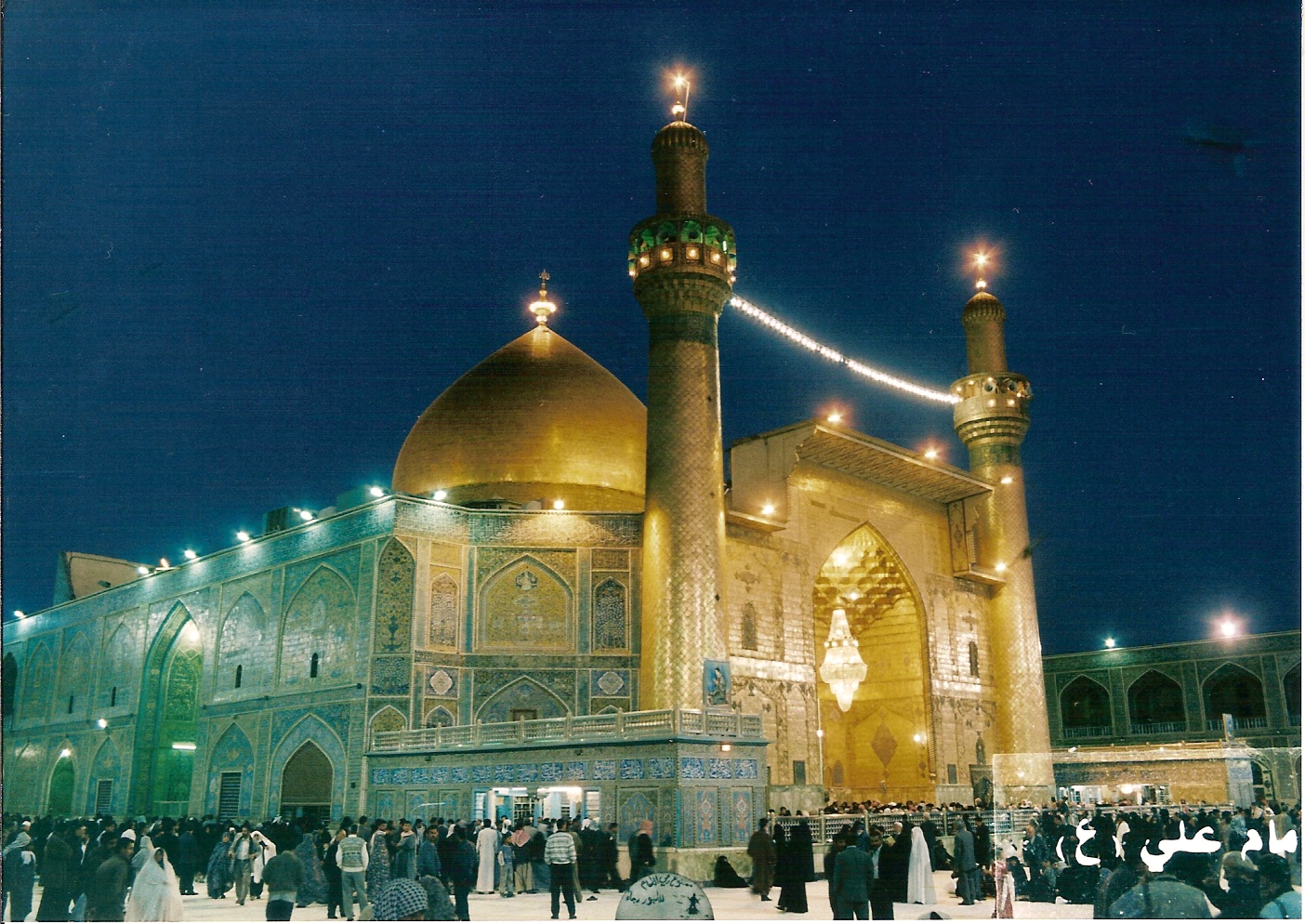
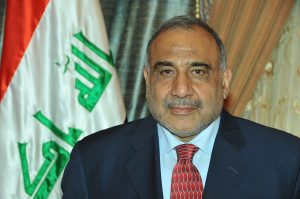
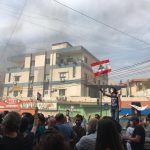
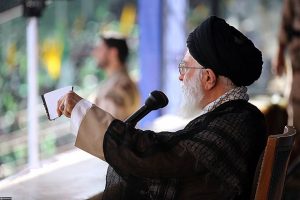
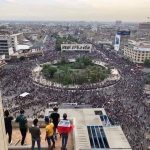
Exceptional insights. Must reading. Shows the inevitable (but accelerating time frame) pendulum is swinging back from central identity being Sunni-Shia sectarian to Iraqi Nationalism. Remember that in 1980, Iraqi soldiers below the rank of Captain were majority Shia yet they killed their Iranian Shia brothers and died for the secular Sunni-dominated Baath identity of Saddam (I was there at US Embassy ’85-87). By 2003-9 we had Iraqi Arab Sunni killing Iraqi Arab Shia and reverse in local neighborhoods, after centuries of co-existence. Same trends in the region – Lebanon for example. This is now the reverse reaction to such extremism. What used to take centuries now takes a few years.
Charles
Here we go again, another pious hope for the reassertion of this or that form of Arab nationalism against Iran.
Your own country is riven by sects, only the structure of your laws is preventing the emergence of sectarianism as well as race war.
In fact, your policies in the Middle East have been sectarian for decades, chiefly advancing the cause of Jews.
I believe I was prescient in assessing that Marja’ya will intervene: your despised Iranian Shia Ayatoolah once again helping stablize Iraq.
In regards to Iraqi Shia soldiers, they were conscripted by a very brutal Sunni Muslim dictatorship, they had no alternatives.
You Americans are still unwilling to settle with Iran and the Shia, hoping against hope for deliverance at zero cost.
You have the same attitude towards Russia and China. What is it that you think you can gain?
There we go again- propagate shia and sunni unity under a secular umbrella and then screw the shias – specifically Iran! MI-6, CIA, Mossad at work again?
Excellent article and insight, in particular from authors who have deep science backgrounds. Every country tries to interfere in its neighbor’s and other people who they believe they can gain benefits from. What was interesting that at no point did the authors mention the vast sums of money, weapons and ideology that Saudi Arabia and its side kicks provided ISIS to destroy the Iraqi society and infrastructure to sell and rape its people. Much of the position Iraq is in is due to the western installment of Saddam, US invasion of Iraq and ISIS destruction of Iraq. The corruption of Iraq’s army was neither the US or Iran’s fault, it was the Iraqi’s not believing their own country and not willing to fight but rather be slaughtered. The corruption presently is more of the same – it is the Iraqi’s who are stealing the money, not the foreigners. The finger needs to pointed to the self rather than the neighbor. But alas, where the funding for the author’s research comes greatly impacts their results.
Rubbish! The CIA and Mossad at work with Murderer-butcher-Saudi (MbS)’s money!